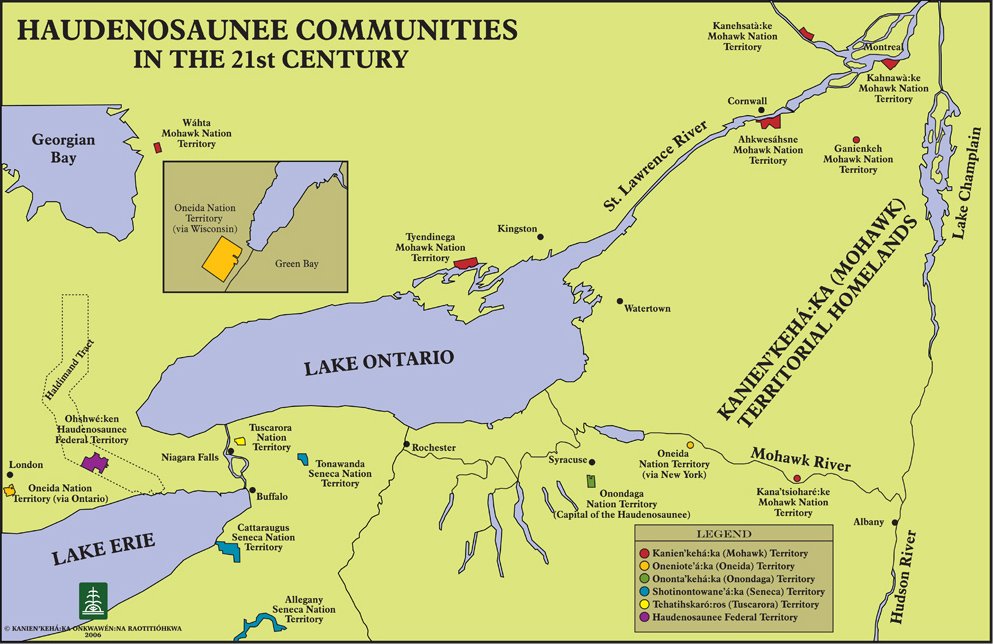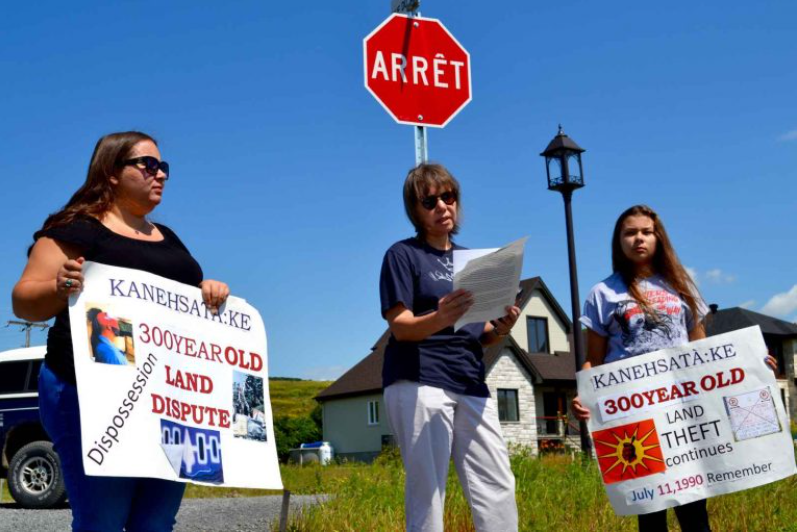STORIES / Okara’shòn:’a

Foundation of our strength
The impacts of the colonial genocidal project have created divisions and dysfunction within our communities. Centuries of hurt and trauma take time and often the oppression turns within, causing the divisions. In order to create reconciliation within ourselves, Indigenous people must understand their past, their stories of survival and life.

Inhabiting the land
When the Sulpicians came to Kanehsatà:ke, they claimed that there was nobody here. As time went by, people started moving away from the village of Kanehsatà:ke to the bay area, where most of our people are now.


Our strength
Almost all Indigenous people have a deeply rooted spirituality that is the basis of how we see things in this world. It’s that mentality that has helped us to survive horrendous stuff in these last 500 years.

We are no longer sovereign
So, we really need to understand to what degree we are colonized. And we need to begin the process of decolonizing ourselves. And that requires us to go back to step 1. Step one is the spiritual realm where we all come from.

Safeguarding our heritage
I believe it's crucial for us to come together and engage in meaningful dialogue. Upholding the principles of the Two Row Wampum is very important: it's about honouring our shared culture and understanding.

Forcibly removed
The people of Kanehsatà:ke were brutalized by the Seminary of St. Sulpice. The sulpicians were a society of priests from France, rich blue bloods filled with evil and greed. They were so rich that they could hire their own security forces to go in to violate and harass our people. Their goal was to get our people to leave our land.

Pivotal moment in Indigenous history
In 1990, the people thought we’d just get arrested; we didn’t expect to be shot at. We didn’t know that the SWAT team would be the ones to do the politician’s dirty work or that they would open fire upon us.
